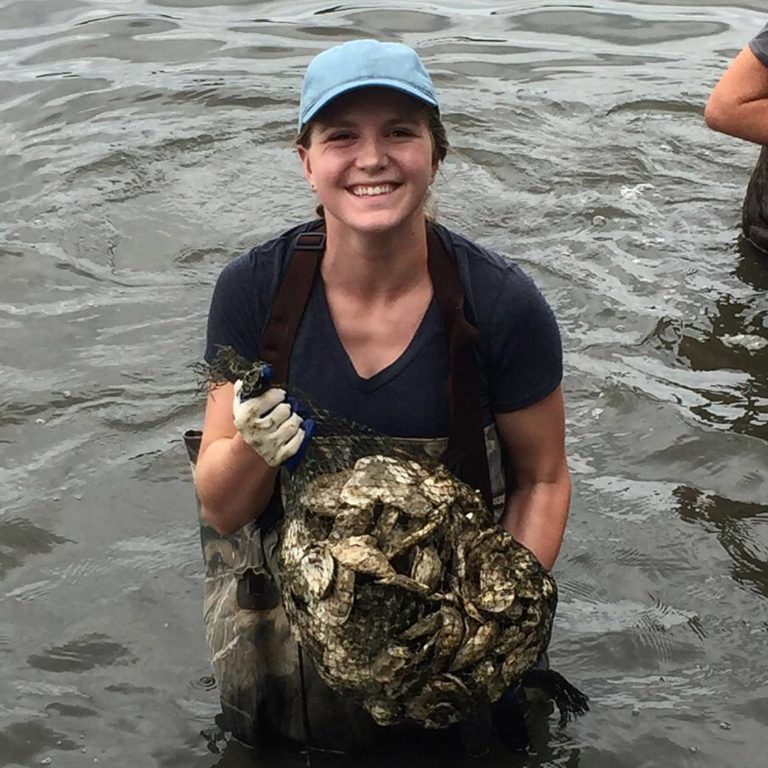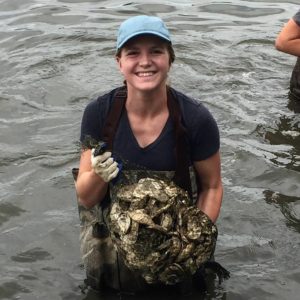Waterkeepers Respond to Governor Hogan’s Veto of Oyster Restoration Bill
By: Waterkeepers Chesapeake

By Choptank Riverkeeper Matt Pluta and Waterkeepers Chesapeake Staff Attorney Katlyn Schmitt. Reposted with permission from Waterkeepers Chesapeake.
Governor Hogan’s veto of the Oyster Fishery Management Plan (HB720/SB830) is a missed opportunity to move forward on reaching a scientifically driven, consensus-based stakeholder process to develop the Oyster Fishery Management Plan for the State of Maryland. By vetoing the bill the Governor is allowing business as usual with the management of the fishery. Business as usual is what got us to where we are with the oyster population today—which the recent oyster stock assessment shows that in the past 20 years the already-low population of adult oysters declined an additional 50%.
If Maryland is truly going to champion the restoration of our local rivers and the Chesapeake Bay, we need to realize it likely won’t happen without restoration of the oyster population. Oysters filter the nutrients and the clean the water from pollutants that are already in our rivers and the Bay. We can—and should—continue to focus on land-based restoration efforts to hold back more pollutants from getting into the water, but we need our natural filters—like oysters—to be able to treat what’s already in our waterways, or what we are unable to capture on our land.
 The success of the OysterFutures project was repeatedly cited—by industry and environmentalists—with high praise throughout the 2019 legislative session. HB720/SB830 would take the process that was piloted for the Choptank River complex and expand it out to the whole state of Maryland. The make-up of this new group would consist of roughly 60% industry and 40% environmentalists, and require at least 75% consensus on any recommended strategy—meaning that not one side alone could create the consensus needed. Collaboration across sectors would be necessary, leading to greater inclusion and transparency in the development of an oyster fishery management. This is hardly a “back room deal” as cited in Hogan’s letter about the veto.
The success of the OysterFutures project was repeatedly cited—by industry and environmentalists—with high praise throughout the 2019 legislative session. HB720/SB830 would take the process that was piloted for the Choptank River complex and expand it out to the whole state of Maryland. The make-up of this new group would consist of roughly 60% industry and 40% environmentalists, and require at least 75% consensus on any recommended strategy—meaning that not one side alone could create the consensus needed. Collaboration across sectors would be necessary, leading to greater inclusion and transparency in the development of an oyster fishery management. This is hardly a “back room deal” as cited in Hogan’s letter about the veto.
The proposed process brings in the voice of the larger community and members of the public who have not had a chance to fully participate through other channels. The OysterFutures project “combined stakeholders and scientific knowledge, and provided a structure that allowed the stakeholders to integrate their perspectives, use scientific forecasts, and develop a consensus set of recommendations for new oyster policies and regulations.” The goal of this process was to develop a package of recommendations that meet the needs of industry, citizens, and government stakeholders in the oyster fishery.
You can’t be a champion for restoring our local rivers and the Chesapeake Bay without championing the restoration and sustainable management of oysters. And we can’t have a thriving oyster industry without a healthy, well-managed oyster population. That is why Choptank Riverkeeper, ShoreRivers, Waterkeepers Chesapeake and many others will vigorously seek an overturn of the veto in the next legislative session.